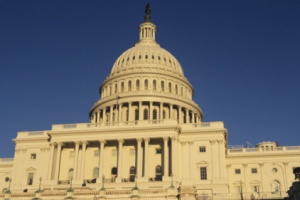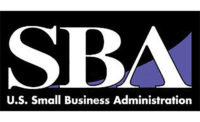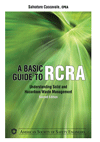 A bill passed recently by the House Small Business Committee would increase regulatory delays and allow regulated industries “undue” influence, according to an advocacy group comprised of public interest, business, consumer, labor and community organizations.
A bill passed recently by the House Small Business Committee would increase regulatory delays and allow regulated industries “undue” influence, according to an advocacy group comprised of public interest, business, consumer, labor and community organizations.
The Coalition for Sensible Safeguards says the Regulatory Flexibility Improvements Act (RFIA), (H.R. 2542), expands the reach and scope of regulatory review panels – “all in the misused name of small business.
H.R. 527 would amend the Regulatory Flexibility Act (RFA) to require federal agencies to analyze fully the impact a new regulation would have on small businesses before the agency adopts the regulation.
Indirect costs
“Because the bill mandates these panels to look at ‘indirect costs’ and then defines that term very broadly, it could be applied to virtually any action an agency attempts to undertake,” according to a statement by the coalition.
The bill would prescribe more stringent requirements for initial and final regulatory flexibility analyses, including requirements for identifying the potential economic impact on small businesses, gathering more stakeholder comments and publishing analyses on agency websites.
Compliance assistance
“Most small businesses understand the need for regulations,” said Frank Knapp, Jr., co-chair of the American Sustainable Business Council Action Fund and President & CEO of the South Carolina Small Business Chamber of Commerce. “What small business would really benefit from is compliance assistance from federal agencies, not review panels designed to inhibit rulemaking, which only benefit the offenders and typically foster an uneven playing field for small business competing against big business.”
Economic impacts on small businesses
The bill would modify standards for determining which proposed rules will be subject to small business review panel requirements beyond the currently-covered EPA and Consumer Financial Protection Bureau to any rules for which an agency will prepare an initial regulatory flexibility analysis or that the Office of Information and Regulatory Affairs (OIRA) determines to be a major rule under standards equivalent to those found in the Congressional Review Act.
H.R. 527 would ensure agencies periodically review regulations that have significant economic impacts on small entities and take action to minimize adverse or disproportionate impacts and maximize benefits to the greatest extent possible, consistent with states objectives of applicable statues. The bill would require that agencies reach out to and gather input from small businesses as a part of the review process.
The rules of the road
“This bill isn’t about helping real small businesses. It’s just using us as cover to push a big business agenda,” said Jim Houser, owner of Hawthorne Auto Clinic in Portland, Ore., and executive committee member of the Main Street Alliance small business network. “Undermining the rules of the road for the financial sector, insurance companies and big polluters won’t help small businesses. It will only shift risk and shift costs from big businesses – big banks, big insurance, big polluters – onto small businesses and our customers.”
Procedural hurdles
Katherine McFate, president and CEO of the Center for Effective Government and CSS co-chair, said: “The agencies charged with protecting the public already face a gauntlet of procedural hurdles when they propose new or updated standards; this bill would increase them. It’s not an improvement; it means more obstruction.”
Robert Weissman, president of Public Citizen and CSS co-chair, said the bill had little to do with small business concerns and was instead concerned with advancing a “Big Business anti-regulation agenda.”




